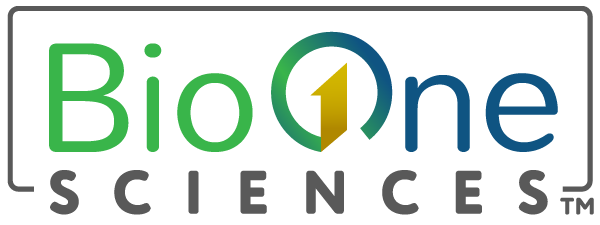
Age-Related Glutathione Decline: What It Means for Your Health
Aging is inevitable, but did you know it affects your body's natural defenses?
One key player is glutathione, a key antioxidant for detox and cell health. Let's break down what glutathione is, why it declines with age, and why you should care.
What is Glutathione?
Glutathione is a vital antioxidant found in every cell of your body. Made up of three amino acids — glutamine, glycine, and cysteine — it is essential for detoxifying the body, maintaining immune function, and protecting cells from oxidative stress.
This powerful molecule neutralizes free radicals, which can cause cellular damage, accelerate aging, and lead to various diseases.
The Age Factor
As you age, your glutathione levels naturally decrease. This decline occurs for several reasons. First, the body's ability to produce glutathione diminishes over time.
The enzymes responsible for its synthesis, such as glutamate cysteine ligase, become less active with age.
Additionally, the demand for glutathione increases as oxidative stress and exposure to toxins accumulate over the years, leading to faster depletion of this critical antioxidant.
Nutrient deficiencies, common in older adults, can also impair glutathione production, as nutrients like selenium and vitamin E are vital for its synthesis.
Research indicates that people over 60 have significantly lower glutathione levels compared to younger individuals, making it harder for their bodies to combat oxidative stress and inflammation effectively (1).
Health Implications of Lower Glutathione Levels
Lower glutathione levels can have profound health implications.
Studies have linked low glutathione to several age-related conditions. For example, glutathione helps protect against the oxidation of LDL cholesterol, a key factor in heart disease (2).
Reduced glutathione levels can lead to chronic inflammation, contributing to arthritis and other inflammatory conditions.
Neurodegenerative diseases like Alzheimer's and Parkinson's are also associated with oxidative stress and mitochondrial dysfunction, both of which are mitigated by glutathione (3).
Some research suggests that low glutathione levels may impair the body's ability to prevent the formation and growth of cancerous cells, highlighting its role in cancer prevention (4).

Symptoms of Low Glutathione
Identifying low glutathione levels can be challenging since its symptoms often overlap with other conditions. However, common signs include:
· Chronic fatigue that doesn't improve with rest
· Brain fog, characterized by difficulty concentrating, memory issues, and mental fatigue
· Sleep problems, such as trouble falling or staying asleep
· Frequent infections due to a weakened immune system
· Unexplained muscle and joint pain
Just to name a few. The good news is there are ways to support your glutathione levels naturally, and most involve simple lifestyle changes.

Ways to Support Glutathione Levels
Maintaining or boosting your glutathione levels is crucial for aging well. One of the best ways to support glutathione levels is through diet.
Foods rich in glutathione precursors, such as broccoli, spinach, avocados, and asparagus, can help. These foods contain sulfur, which is essential for glutathione synthesis. Additionally, consuming foods high in selenium, like Brazil nuts and fish, supports glutathione production (5).
Supplements can also play a role in boosting glutathione levels. N-acetylcysteine (NAC) is a popular supplement that provides cysteine, one of the building blocks of glutathione. Alpha-lipoic acid and milk thistle are other supplements known to support glutathione levels.
However, there is some controversy around the effectiveness of oral glutathione supplements, as the body may not absorb them efficiently. This is where liposomal glutathione supplements come in.
Why Choose Liposomal Glutathione?
Unlike traditional oral supplements, liposomal glutathione ensures superior delivery and absorption. It uses tiny protective bubbles that help the glutathione get absorbed better and reach the tissues where it's needed most.
At BioOne Sciences, our Liposomal Glutathione 500 provides a concentrated dose of 500 mg of pure glutathione plus activated B vitamin cofactors in each 4 mL serving. This product uses phosphatidylcholine liposome delivery technology, which results in superior delivery, absorption, and bioavailability. The liposomes are the optimal size for absorption, as small as 50 nanometers.
Additionally, our supplements are made in the USA in a cGMP, NSF-certified facility according to standards defined and overseen by the FDA. Our stringent liposomal process uses no added pressure, heat, or solvents, ensuring high potency. All-natural phosphatidylcholine, classified as lecithin, is derived from non-GMO certified sunflower oil from Europe. This supplement is also naturally non-gluten, alcohol-free, soy-free, vegan, and made of non-GMO ingredients.

References:
1. https://www.ncbi.nlm.nih.gov/pmc/articles/PMC3099083/
2. https://www.atherosclerosis-journal.com/article/S0021-9150(07)00341-3/abstract
3. https://www.alzheimers.gov/clinical-trials/glutathione-alzheimers-disease
4. https://www.ncbi.nlm.nih.gov/pmc/articles/PMC3673338/
5. https://www.healthline.com/nutrition/how-to-increase-glutathione


